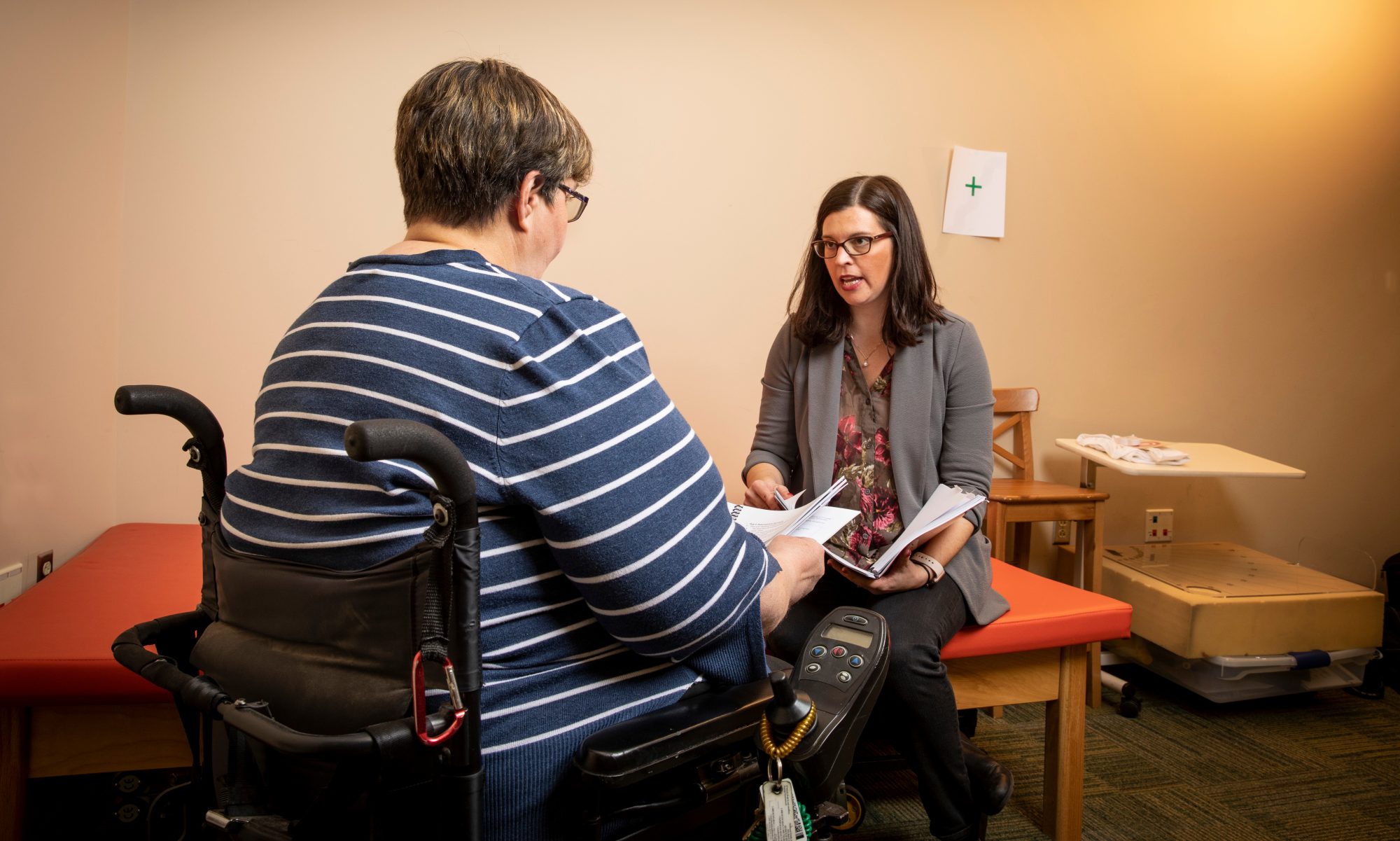The members of the MS Research Collaborative represent the depth and breadth of MS research at the University of Illinois Urbana-Champaign. We continue to grow and collaborate across campus. These are the core members who make up our Collaborative.
 Liz Hsiao-Wecklser
Liz Hsiao-Wecklser
I direct the Human Dynamics and Controls Laboratory (HDCL) in the Department of Mechanical Science and Engineering. Our research group uses methods from design, control theory, mechatronics, pneumatics and soft robotics, musculoskeletal biomechanics, and movement analysis. The HDCL focuses on investigating and improving movement control and function through two main areas: assistive device development and locomotion biomechanics. The HDCL’s interest in assistive device development stems from a desire to improve function and the quality of life of persons with disability. To address these areas, we have been involved in the development of pneumatically powered orthotic devices for the upper and lower extremities and multi-speed wheel systems for manual wheelchairs in conjunction with IntelliWheels, Inc., a local start-up.
 Chung-Yi Chiu
Chung-Yi Chiu
A Certified Rehabilitation Counselor, Professor Chiu’s research investigates issues related to the health and quality of life of people with chronic illnesses and disabilities. Much of her work focuses on people with multiple sclerosis and cancer survivors. Within the population of multiple sclerosis, she has examined the mediating effects of exercise, diet, and stress management on functional disability and health-related quality of life; dietary and physical activity self-management; and the effectiveness of the Health Action Process Approach as a health promotion model.
 Manuel Hernandez
Manuel Hernandez
Dr. Hernandez’s professional interests include biomechanics, motor control, and neuroscience in older adults. Dr. Hernandez’s research has focused on the use of experimental and theoretical models of risk factors for injury or disability during the performance of goal-directed movements in older adults with and without neurological disorders, particularly Parkinson’s disease. Dr. Hernandez is interested in the behavioral and neural mechanisms underlying postural dysfunction in older adults and particularly in the development of behavioral and neural biomarkers for early detection of neurological disorders.
 Citlali Lopez-Ortiz
Citlali Lopez-Ortiz
Dr. Lopez-Ortiz’s research focuses on how the human brain generates dexterity in motor coordination using the language of dance movement to inform the design of dance/movement training protocols in health, disease, and disability through the life span. Her research is intrinsically interdisciplinary. It includes the areas of dance, biomechanics, mathematical modeling, motor control, motor learning, physics, body-environment interfaces, mixed media, computational neuroscience, neurophysiology, and rehabilitation.
 Naiman Khan
Naiman Khan
Dr. Naiman Khan’s research interest is in the area of Nutritional Neuroscience. Our laboratory utilizes a multidisciplinary approach to integrate knowledge in the disciplines of dietetics, body composition, and cognitive neuroscience to understand the interactions between lifestyle behaviors (e.g., diet and physical activity), abdominal adiposity, and cognitive and brain health in the pediatric and adult population. The knowledge gained from this work is used to develop effective behavioral or environmental strategies of mitigating the detrimental effects of obesity and metabolic risk on measures of physical and mental health.
 Laura Rice
Laura Rice
Professor Rice’s research interest is in the area of disability and health. She is specifically interested in the prevention of secondary impairments associated with disability to maximize quality of life and community participation among wheelchair users. A related interest is in examining education techniques to enhance functional mobility, prevent development of secondary impairments and effectively utilize assistive technology to promote health and well-being among individuals with disabilities.
 Brynn Adamson
Brynn Adamson
“With my research I facilitate peer-developed and peer-delivered exercise programs for individuals with multiple sclerosis. My goals are to provide access to exercise opportunities in a way that allows for greater autonomy, increased social support and reduced apprehension regarding disability.”
 Andrew Steelman
Andrew Steelman
Dr. Steelman investigates the impact of environmental factors such as infection, nutrition, and environmental and psychological stress on the intercellular communication pathways between cells of the brain and the immune system.
 Lyndsie Koon
Lyndsie Koon
Lyndsie Koon is a post-doctoral research associate at the University of Illinois Urbana-Champaign in the Human Factors and Aging Laboratory. Her research interests include exercise and physical activity, cognitive function, motivation, technology, and older adults. Her current research focus examines the challenges and solution strategies adults aging with sensory and mobility impairments experience with everyday activities and specifically, exercise needs. She also is exploring the potential of various technologies (e.g., voice-activated digital assistants, tele-technology) to support physical activity participation and social engagement for adults aging with and without mobility impairments; and understanding motivational factors for older adults associated with physical activity technologies (e.g., FitBits, Physical Activity Trackers).
 Gill Snyder
Gill Snyder
Dr. Gillian Snyder’s primary role is to apply her research expertise to implement the vision and strategic direction of IHSI. Gillian develops and directs the IHSI research programs, cores, and selected special projects, including REDCap, a campus-wide research data software solution, and the Health Sciences Data Analytics Core. She also engages with various research groups across campus to provide programming to educate researchers about best practices (including storage of HIPAA and sensitive health research data); offer consultative support in using resources, services, and applications germane to research; and address challenges in conducting research.
 Jacob Sosnoff
Jacob Sosnoff
Professor Sosnoff’s areas of interest are Motor Behavior and Control, Aging, and Perceptual-Motor Variability. His research focuses primarily on the underlying neurophysiological and behavioral factors responsible for fluctuations (i.e. variability) in performance across the lifespan. This research interest is based on the rationale that a better understanding of these mechanisms will facilitate the development of practical interventions capable of minimizing the negative aspects of the aging process.
